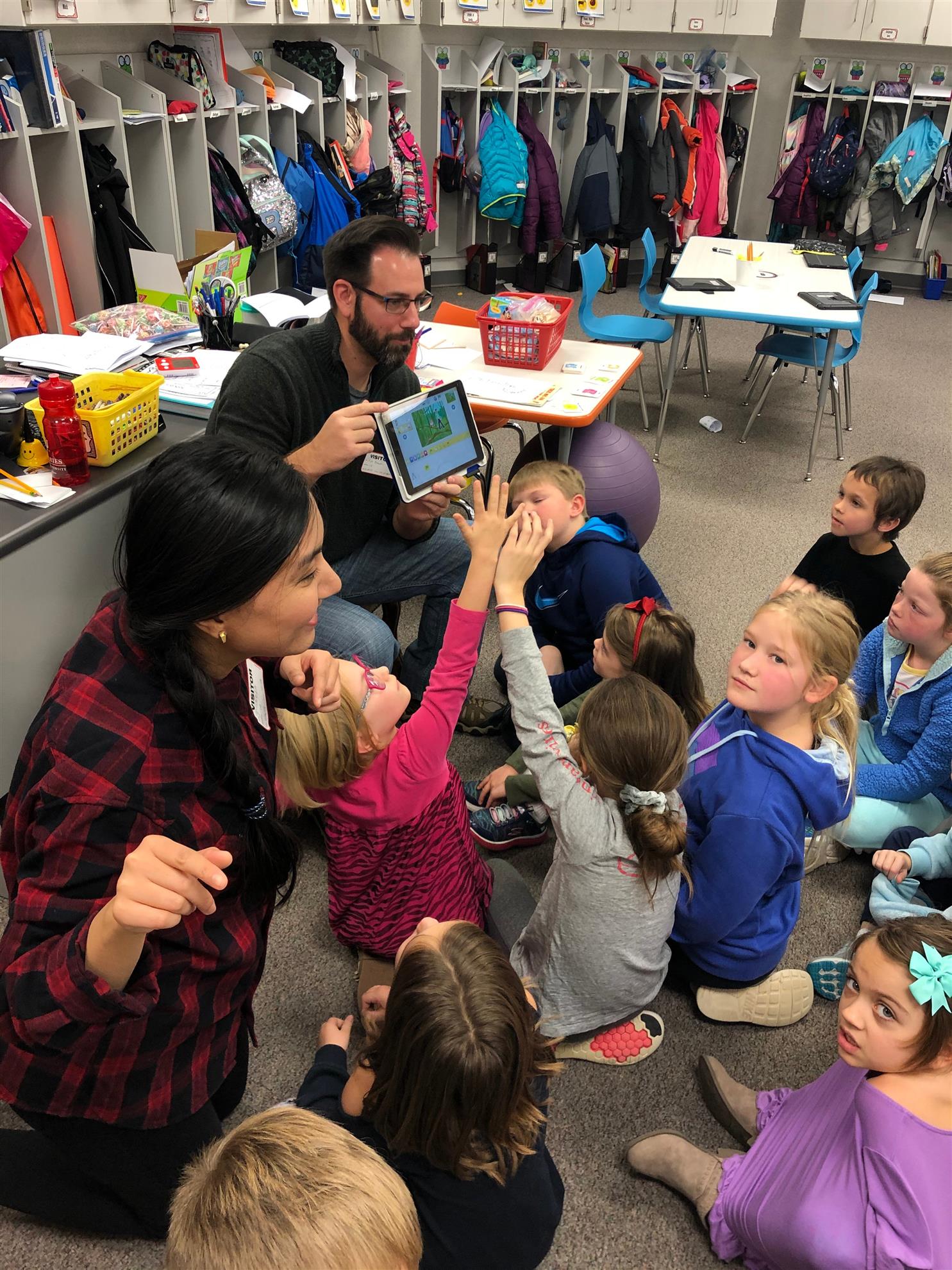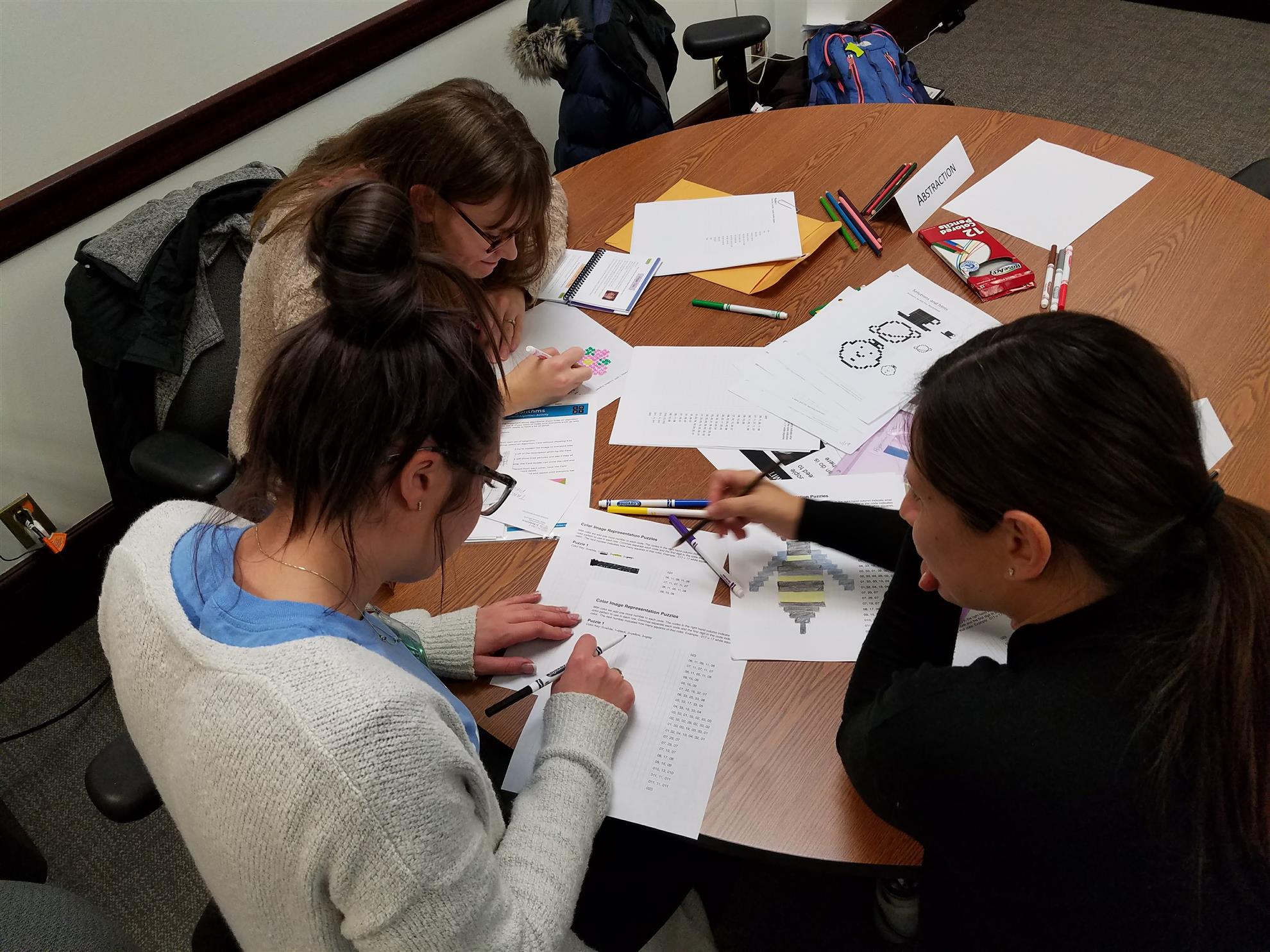Why should Schools of Education offer CS programs?
The field of computer science (CS) education has rapidly accelerated over the past two decades, thanks to the contributions of countless organizations. Throughout this movement, we have learned a great deal more about effective K-12 CS instruction and increased access to high-quality CS learning opportunities for K-12 students and teachers. We have also seen rapid proliferation of policies designed to facilitate the expansion of computer science education, including the adoption of K-12 CS Standards, CS teacher certification, and teacher preparation programs in higher education. Still, most efforts to meet the increased demand for CS teachers have focused on training inservice educators to teach computer science. We must now broaden this focus and leverage teacher preparation programs to build a sustainable pipeline of K-12 educators who can support rigorous and inclusive instruction across a variety of CS programs.
 Institutions of higher education are a critical component of meeting the need for qualified CS teachers in K-12 schools. Faculty and administrators in Schools of Education and Computer Science Departments are already collaborating to design and deliver high-quality inservice CS learning experiences and programs for preservice and inservice teachers. Without their leadership and sustained collaboration, the CS teacher workforce will be difficult to scale and preparation for pre-service CS teachers will continue to lag behind other academic disciplines. Although it is currently difficult to present a clear picture on how many CS preservice teachers graduate each year, we can begin to gather ideas about these numbers from 2016 Title II data. We recognize that these data were collected 4 years ago and the CS education landscape has changed dramatically, but in 2016, Title II data reported that only 75 teachers nationally graduated from universities prepared to teach computer science. In contrast, the same Title II data reported that 12,528 and 11,917 teachers graduated prepared in mathematics and the sciences, respectively. As active participants in this space, we believe these numbers are still just as desperate. Stakeholders have indicated that we need CS preservice teachers to address the lack of CS teachers and the increase in K-12 CS offerings in schools.
Institutions of higher education are a critical component of meeting the need for qualified CS teachers in K-12 schools. Faculty and administrators in Schools of Education and Computer Science Departments are already collaborating to design and deliver high-quality inservice CS learning experiences and programs for preservice and inservice teachers. Without their leadership and sustained collaboration, the CS teacher workforce will be difficult to scale and preparation for pre-service CS teachers will continue to lag behind other academic disciplines. Although it is currently difficult to present a clear picture on how many CS preservice teachers graduate each year, we can begin to gather ideas about these numbers from 2016 Title II data. We recognize that these data were collected 4 years ago and the CS education landscape has changed dramatically, but in 2016, Title II data reported that only 75 teachers nationally graduated from universities prepared to teach computer science. In contrast, the same Title II data reported that 12,528 and 11,917 teachers graduated prepared in mathematics and the sciences, respectively. As active participants in this space, we believe these numbers are still just as desperate. Stakeholders have indicated that we need CS preservice teachers to address the lack of CS teachers and the increase in K-12 CS offerings in schools.
If we believe that CS is a core subject that all K-12 students should learn we must treat the preparation of these teachers the same as those from other disciplines. This means ensuring that all pre-service teachers receive some foundational CS knowledge as an integral aspect of their preparation and requiring all graduates to demonstrate CS skills as part of their competencies, in addition to preparing discipline-specific future CS teachers. We recognize that Schools of Education are coming to this work from multiple situations. Some have long-standing teacher preparation programs for CS secondary teachers. Others may be eager to develop programs to meet new state policy requirements for CS teacher certification, or integrate CS pedagogy into K-8 teacher preservice programs. We hope that the CSTA Standards for CS Teachers invite Schools of Education to evaluate what they are currently doing and look for opportunities to develop new collaborations, and guide faculty and administrators in Schools of Education as they develop new or refine existing teacher preparation programs.
 Effective CS teachers must have thorough content knowledge and skills in computer science and understand student learning progression. They must also continuously refine their pedagogical content knowledge (PCK) and skills to support all students in meeting learning outcomes. Schools of Education are well positioned to leverage these Standards to establish robust guidelines for their preservice candidates and serve the field of CS education by expanding the pipeline of qualified K-12 CS teachers. This appendix outlines a series of case studies, resources, and recommendations to provide guidance for Schools of Education to implement and align their teacher preparation programs and graduate supplemental programs to the CSTA Standards for CS Teachers.
Effective CS teachers must have thorough content knowledge and skills in computer science and understand student learning progression. They must also continuously refine their pedagogical content knowledge (PCK) and skills to support all students in meeting learning outcomes. Schools of Education are well positioned to leverage these Standards to establish robust guidelines for their preservice candidates and serve the field of CS education by expanding the pipeline of qualified K-12 CS teachers. This appendix outlines a series of case studies, resources, and recommendations to provide guidance for Schools of Education to implement and align their teacher preparation programs and graduate supplemental programs to the CSTA Standards for CS Teachers.
